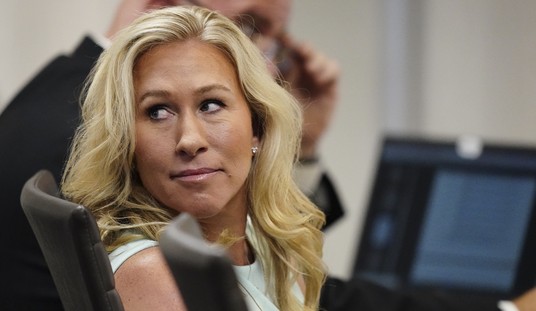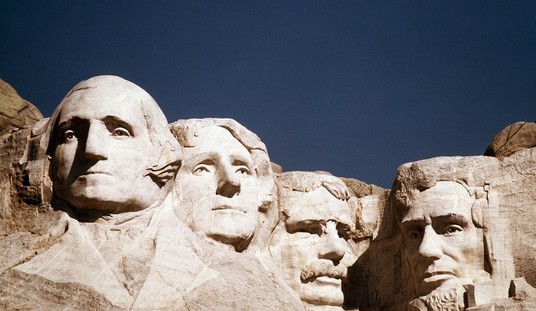This comes across more as a cri de coeur rather than admission, but critics of James Comey have seized on this passage as the latter. The former FBI director writes about his handling of the Hillary Clinton probe in his new book A Higher Loyalty, the memoir about to be released to the public next week. As Comey muses on the influences of pride and hubris in his memoir, the New York Times puts two of Comey’s most controversial 2016 moves in that context — as does Comey himself:
Long passages in Comey’s thesis are also devoted to explicating the various sorts of pride that Niebuhr argued could afflict human beings — most notably, moral pride and spiritual pride, which can lead to the sin of self-righteousness. And in “A Higher Loyalty,” Comey provides an inventory of his own flaws, writing that he can be “stubborn, prideful, overconfident and driven by ego.”
Those characteristics can sometimes be seen in Comey’s account of his handling of the Hillary Clinton email investigation, wherein he seems to have felt a moral imperative to address, in a July 2016 press conference, what he described as her “extremely careless” handling of “very sensitive, highly classified information,” even though he went on to conclude that the bureau recommend no charges be filed against her. His announcement marked a departure from precedent in that it was done without coordination with Department of Justice leadership and offered more detail about the bureau’s evaluation of the case than usual.
As for his controversial disclosure on Oct. 28, 2016, 11 days before the election, that the F.B.I. was reviewing more Clinton emails that might be pertinent to its earlier investigation, Comey notes here that he had assumed from media polling that Clinton was going to win. He has repeatedly asked himself, he writes, whether he was influenced by that assumption: “It is entirely possible that, because I was making decisions in an environment where Hillary Clinton was sure to be the next president, my concern about making her an illegitimate president by concealing the restarted investigation bore greater weight than it would have if the election appeared closer or if Donald Trump were ahead in all polls. But I don’t know.”
How does one even begin to unpack this? Comey seems to want credit for struggling with his soul on the basis that (a) law-enforcement leadership is a tough job, and (b) he tried to separate his own ego from his decision-making. It comes across more like whining, though, especially when the conundrum was of his own making. Having conducted the July 2016 press conference that all but closed the Hillary Clinton probe — apparently while aware of serious conflicts of interest at the Department of Justice that Comey still hasn’t fully disclosed — he had little choice but to inform Congress that he had to reopen the probe in late October.
You know what would have prevented the whole thing? Keeping his mouth shut about all of the investigations in the first place. That’s what an FBI director is supposed to do, only commenting when charges get filed. Or, when that might not have worked in this case, go to Congress to reveal the classified conflicts of interest that might impede his investigations. Comey didn’t do either, which leaves one with the impression that he was more interested in the politics of the situation then, and more interested in the politics of the situation now, too.
Color Nate Silver unimpressed:
If Comey's decision to release the letter on Oct. 28 was influenced by his interpretation of the polls, that really ought to cut against his image as an honorable, principled decision-maker. Instead, he was just being expedient and trying to save his own hide.
— Nate Silver (@NateSilver538) April 13, 2018
Silver won’t be alone in this assessment, especially among Hillary Clinton supporters, who have been torn between blaming Comey for Hillary’s loss and championing him as a leader of La Résistance. And let’s revisit this statement specifically, emphasis mine:
“It is entirely possible that, because I was making decisions in an environment where Hillary Clinton was sure to be the next president, my concern about making her an illegitimate president by concealing the restarted investigation bore greater weight than it would have if the election appeared closer or if Donald Trump were ahead in all polls.”
Oddly, Comey doesn’t seem to have that concern about Trump, at least now. Why is that, and why would we credit that motivation in October 2016 seeing what has happened since?
Get ready for the White House to beat Comey over the head with this passage. Kellyanne Conway got the ball rolling on Fox & Friends this morning, calling Comey a “disgruntled ex-employee” more interested in self-aggrandizement:
.@KellyannePolls: "[@Comey] sounds like a disgruntled ex-employee who after the fact wants to clear his conscience of what bothered him at the time. If you're that bothered, quit. Leave the job." pic.twitter.com/sGog99STqC
— Fox News (@FoxNews) April 13, 2018
“He’s taking one or two or three meetings with the president and retroactively putting his own spin on them to sell books,” Conway said Friday.
“He sounds like a disgruntled ex-employee who after the fact wants to clear his conscience of what bothered him at the time. If you’re that bothered, quit. Leave the job,” she added.
Conway continued, hitting Comey for his recent and upcoming media appearances over the release of his book, “A Higher Loyalty: Truth, Lies, and Leadership.”
“It seems pretty self-aggrandizing to me,” she added.
Granted, it takes some chutzpah for anyone working for Trump to complain that his critics are “self-aggrandizing,” but it’s not an entirely unfounded complaint. Conway raises a good point, too. If Comey was really this troubled about Trump and the White House, why didn’t Comey resign? Would he have found all of this as objectionable if Trump had never fired him?







Join the conversation as a VIP Member